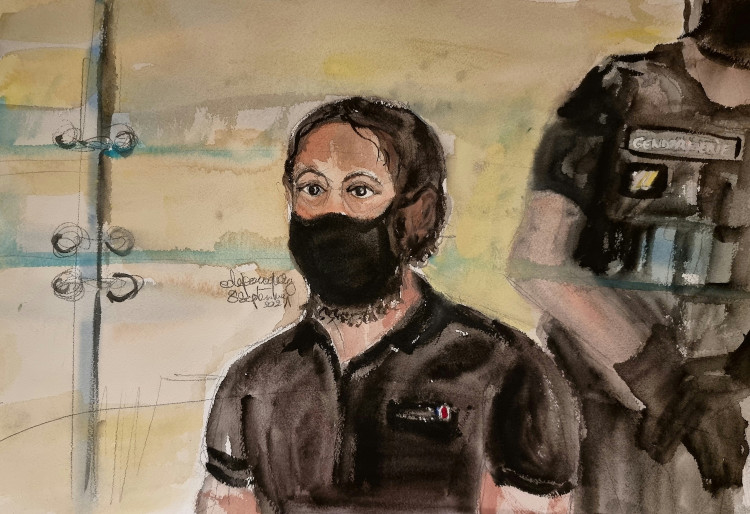The highest-profile survivor of a 2015 terrorist attack that killed 130 people across Paris in a single night was sentenced to life in prison on Wednesday, ending a months-long trial that aimed to close one of France's most painful chapters in modern history.
Salah Abdeslam, a 32-year-old Frenchman of Moroccan origin and one of 10 Islamic State attackers who fanned out across the nation's capital on Nov. 13, 2015, nine of whom died in shootouts with police or detonated suicide vests. Abdeslam was captured alive by police four months after the bloodbath at the Bataclan concert hall and other locations.
The head of a five-judge panel overseeing the trial of 20 men accused of involvement in the assault on the capital read out his sentence, which was the harshest possible.
"The sentences are quite heavy," one tearful survivor, Sophie, told AFP as she left the court in central Paris. "I feel a lot of relief. Ten months of hearings - it's helped us to rebuild."
The other 19 suspects, who were accused of plotting or providing logistical support, were also found guilty and sentenced to prison terms ranging from two years to life imprisonment.
As the sentences were read out, hundreds of victims and witnesses packed the benches of the specially constructed courtroom.
"My first reaction is that we have the feeling of turning a page after the verdicts," Gerard Chemla, a lawyer representing victims at the trial, told reporters.
Abdeslam began his public appearances in September by defiantly declaring himself an "Islamic State fighter," but ended by tearfully apologizing to victims and pleading for mercy.
His lawyers had also argued against the prosecutors' demand for a life sentence. It offers only a small chance of parole after 30 years and has only been pronounced four times since its inception in 1994.
In an attack immediately claimed from Syria by the Islamic State group, a group of ten militants laid siege to Paris, attacking the national sports stadium, bars, and the Bataclan.
The attacks shocked France, with the targets and manner of violence appearing to be designed to instill maximum fear, coming just 10 months after a separate attack on the Charlie Hebdo magazine.
The massive loss of life signaled the beginning of a gruesome and violent period in Europe, as the Islamic State increased its attacks across the continent.






